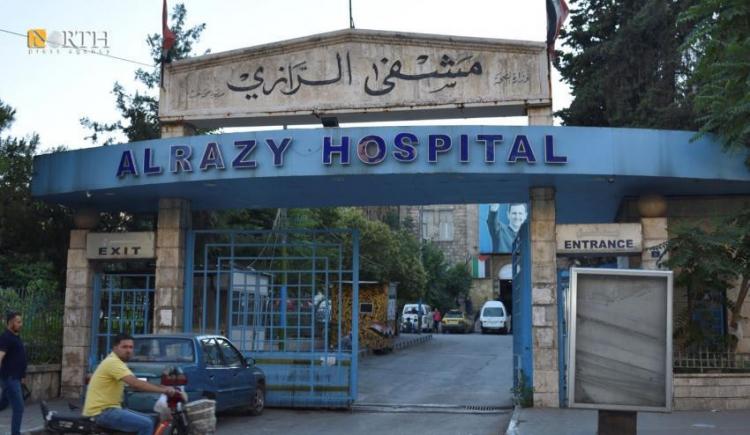Aleppo, SYRIA – (North Press) Patients and their families in the city of Aleppo, northern Syria, criticized the presence of waste and dirt in the rooms and corridors of al-Razi Government Hospital, in addition to the wear and tear of furniture that is difficult to clean due to rust and holes, due to lack of interest in replacing or maintaining it.
These patients and families fear that they will fall ill due to the current neglectful situation in the hospital, especially with the increase in the spread of coronavirus. The total number of registered cases of coronavirus in Aleppo has reached 19, according to the Syrian Ministry of Health.
Jinan Muhammad, who visited the hospital with her mother, said that she was surprised by the amount of dirt when she accompanied her mother to a room in the orthopedic department.
She added, "We turned on the fan in the room, but it was spreading dust and dirt…we were afraid that it would fall on our heads at any moment."
Muhammad mentioned also that she removed her mother, who also suffers from asthma, from the hospital without seeking treatment. “We left the hospital late at night without waiting for the doctors’ approval, because my mother is old and cannot tolerate other diseases.”
This comes amid many low-income residents of Aleppo having to go to government hospitals operating in the city because of the high treatment cost in private hospitals and clinics, and in light of the deteriorating economic and living situation throughout the country.
"The rooms in al-Razi Hospital have become like huts because of the accumulation of dirt in them without cleaning them," Aleppo resident Fayyad al-Barazi told North Press.
He added that he removed his mother from the hospital because of the rooms soiled with the remains of patients' blood and the remnants of their treatments.
Al-Barazi believed that "everyone who enters the hospital in this case must warn of the possibility of developing other diseases, in addition to the disease that is being treated."
He says that he will not go to the hospital again until the Syrian Ministry of Health restores and cleans it.
The manager of al-Razi Hospital, Dr. Maan Dibba, denied to North Press the existence of any failure by the hospital's hygiene department and attributed the reasons for messes to the crowding in the hospital, but he mentioned the hospital's need for restoration work.
He added that "the permanent overcrowding situation in the hospital prevents continuous cleaning of corridors, and people think that the matter is negligence, but there is no fault on the part of the cleaning department."
Dibba revealed that the Syrian Ministry of Health has allocated a budget for the hospital to restore it again, from the rooms to the external building.
The Ministry has not yet indicated the size of the budget and the date for the start of the restoration process, despite previous promises and plans submitted with the aim of developing hospital services.
Dibba mentioned also that "the US sanctions negatively affect the hospital's restoration process, because essential medicines and hospital supplies such as beds and equipment are only available abroad, and we cannot easily secure them."

